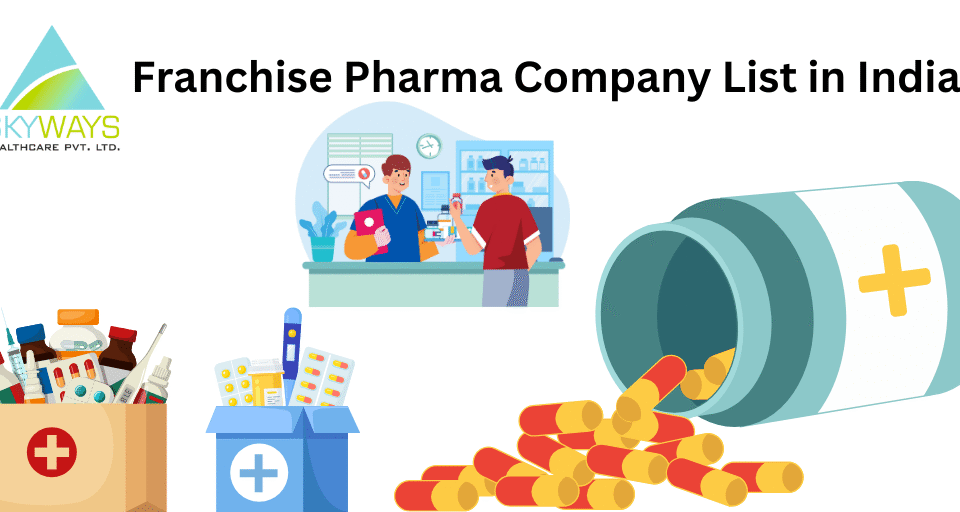- Skyways Healthcare an ISO 9001-2008 Certified Pharmaceutical Company
- +91 90349 25440
- skywayshealthcare@gmail.com
What is PCD vs Pharma franchise?

Benefits of Ethical Pharma Franchise
May 25, 2023Franchise Pharma Company List in India
July 24, 2023PCD (Propaganda-cum-Distribution) and Pharma franchise are both business models prevalent in the pharmaceutical industry. They involve the distribution and marketing of Pharmaceutical products, Skyways Healthcare is Providing information. There are some differences between PCD vs Pharma franchise?.
Table of Contents
Toggle1). PCD (Propaganda-cum-Distribution):
PCD is a marketing and distribution concept commonly used in the Pharmaceutical industry. It involves appointing individuals or companies as authorized distributors for PCD Pharma Products. The distributors, known as PCD franchisees, are responsible for promoting and selling the products in a specific geographic area. Here are the key features of the PCD model:
(i) Marketing and Distribution:
PCD franchisees undertake the marketing and distribution of pharmaceutical products on behalf of the parent company or manufacturer. They promote the products to doctors, hospitals, clinics, and pharmacies within their assigned area.
(ii) Exclusive Rights:
PCD franchisees typically have exclusive rights to promote and sell the products in their designated territory. They operate independently and may appoint sub-franchisees or sales representatives to expand their reach.
(iii) Investment and Infrastructure:
PCD franchisees are required to make an initial investment to purchase the products from the parent company. They also need to establish their own infrastructure, including storage facilities, sales teams, and promotional activities.
(iv) Profit Sharing:
PCD franchisees earn profits by selling the products at a marked-up price. They usually purchase the products from the parent company at a discounted rate, keeping the difference as their profit margin.
2). Pharma Franchise:
Pharma franchise is another business model in the pharmaceutical industry that involves the distribution and marketing of products. It operates on a larger scale compared to the PCD model and provides more extensive rights and support to franchisees. Here are the key features of the pharma franchise model:
(i) Franchise Agreement:
The parent company grants a franchisee the right to operate under its established brand name. The franchisee pays a fee or royalty to the parent company for this privilege. The franchise agreement outlines the terms and conditions governing the partnership.
(ii) Brand and Product Promotion:
Pharma franchisees promote the parent company’s brand and products in their designated territory. They use the established brand name and marketing materials provided by the parent company to market the products to doctors, hospitals, pharmacies, and other healthcare professionals.
(iii) Extensive Support:
Franchisees receive extensive support from the parent company, including product training, marketing materials, promotional strategies, and assistance in setting up infrastructure. The parent company may also provide ongoing guidance and support to ensure the success of the franchisee.
(iv) Investment and Profit Sharing:
Pharma franchisees invest in setting up their infrastructure, including office space, staff, and inventory. They earn profits by selling the products at a marked-up price, similar to the PCD model. The parent company may also share a percentage of the profits with the franchisee.




